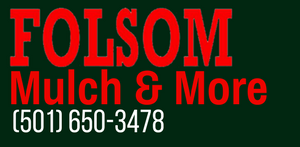FREQUENTLY ASKED QUESTIONS
LEARN MORE
Take a moment to explore our frequently asked questions section to learn more about the benefits of our landscaping supplies including gravel, recycled mulch, and top soil varieties.
Take a moment to explore our frequently asked questions section to learn more about the benefits of our landscaping supplies including gravel, recycled mulch, and top soil varieties.
Call Us Today At (501) 650-3478
MULCH FAQ
What is mulch used for? Mulch is utilized for a variety of outdoor purposes. Many homeowners use mulch in flower beds and within other landscaping features of their lawn. Mulch can even be found in playgrounds. It serves as a great covering material that adds beauty and health to any space.
Why is it important to use mulch? Mulch is particularly beneficial to your lawn and plants because it helps retain moisture; it also creates a protective barrier from heat and colder temperatures that might otherwise damage your plants and florals. Mulch can also provide extra health benefits since certain varieties, like organic mulch, decomposes and releases a rich mix of nutrients into your lawn.
What is the difference between color mulch and natural mulch? Just that. Color. The real difference is natural mulch is left in its raw, organic state so it tends to be a mix of browns and tans. Colored mulch is dyed with a rich blend of colors you commonly see, such as red mulch and black mulch.
How much mulch should I use? It really depends on the project. If you are utilizing mulch for landscaping, a good rule of thumb is no more than an inch per surface area. Otherwise, you will overload your soil and plants. For playgrounds and other surface areas -- it depends on how much coverage you seek.
GRAVEL FAQ
What is gravel made of? Typically, most gravel varieties are composed of a mix of unconsolidated rock fragments; which essentially means, a loosely composed pile of small rocks. In fact,
gravel is often referred to as "crushed rocks." Because that's how it's made. Some gravel is formed naturally as seen near lakes but most is developed through a process of mixing crushed rock mediums into one gravel composition.
The rock varieties commonly used for this process include sandstone, limestone, basalt, and others.
What are the different types of gravel? There are many different types of gravel to choose from. At Folsom's alone, we carry seven types including C-ballast, SB2, red clay gravel, river rock gravel, masonry sand, oversized gravel, and pea gravel. These refer to more specific gravel types but the general classifications of gravel falls under limestone, creek gravel, cobble, and pea gravel varieties.
Limestone gravel types are ideal for driveways and walkways since they make a solid base easily. Creek gravel (as its name implies) is composed of smooth, pebble-like rocks that can be used for driveways as well. While similar in texture, cobble gravel works well for paths but not driveways since it's more loosely composed. Pea gravel is a very commonly seen gravel type that's utilized for a variety of purposes.
SOIL FAQ
What is the difference between top soil and compost? Generally speaking,
top soil refers to the upper most layer of earth that is composed of rock, water and humus. You can find natural top soil just beneath your grass and flowerbeds. Compost on the other hand, is a nutrient rich mixture of biodegradable materials such as grass clippings, green leaves and other wet and dry "waste" materials that are designed to decompose and replenish your lawn with nutrients.
What are the benefits of using soil? Using a quality soil can replenish your lawn and garden with a variety of benefits. Good soil stimulates plant growth by retaining moisture and nutrients. Similarly to mulch, it also creates a sturdy barrier that holds plants upright and shields them from turbulent temperatures.
What can I use soil for? Just about anything! Soil is great for flowerbeds and potted plants. Planning to landscape your lawn with shrubs and other greenery? Soil can add a pop of color and a full blend of nutrients for your plants.



